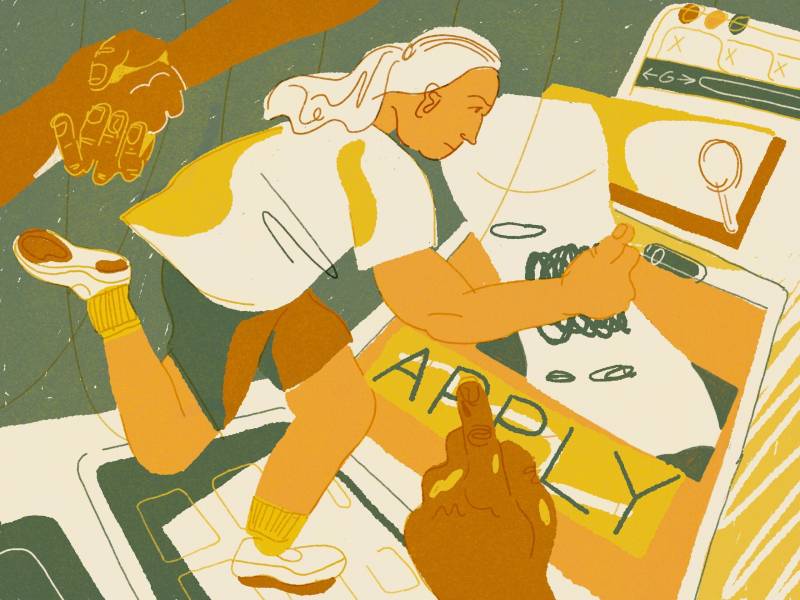This guide is part of the KQED News series What to Do After a Layoff.
If you’ve just been laid off, how can you embark on finding a new job — especially if it’s been a while? How fast should you move, and where should you look?
Along with how to apply for unemployment benefits and how to save money, how to find a new job — preferably one you’ll actually enjoy — is top of mind for many people after a layoff. But it’s not always easy.
So, KQED spoke to Bay Area-based career coach Horst Govin, who runs the job-hunting program Job Hunt Bootcamp, about the most effective, productive ways to find your next job, how to approach updating your résumé and the best methods for reaching out to other people about job opportunities — plus how to retain your peace during what can be an often-frustrating process.
Jump straight to:
- How to tackle your résumé
- How to activate your networks (without spamming people)
- Why endlessly scrolling job listings probably won’t work
Don’t take it personally
If getting laid off has you truly freaked out, Govin says it’s important to know this is a completely natural reaction. “For a lot of people, and especially for people who it’s their first experience being laid off, the initial reaction is, ‘Oh, my God, what did I do wrong? What’s wrong with me? How can I let this happen to myself?’” he said.
As hard as it might initially feel, you have to let go of this feeling to be able to move forward effectively and find that next job, Govin said: “This has nothing to do with you. This is a decision that was made at a much higher level.”
As horrible as a layoff feels, “this is a routine matter in business,” stressed Govin. “It happens all the time, and it happens to a lot of people.” So blaming yourself, or thinking this means you were bad at your job, is just not accurate, he said: “Sometimes businesses grow too quickly. Sometimes businesses don’t plan appropriately.”
“And in many cases, the decision to lay off is made by somebody who made a mistake prior to the layoff and now is correcting that mistake with the layoff,” said Govin. “Or it’s the remains of a situation that’s out of anyone’s control — like the market.”
Realizing this doesn’t bring your job back, of course, or change the fact that other folks kept their jobs and you didn’t. But if you’re able to ground yourself, and truly understand that this wasn’t something you caused, “you can come back to where you are, from a place of security and confidence,” said Govin — and be in a much stronger position to make your next career move.

Pause — if you can — and take control of your search
When you lose your job, you may feel like you have to start looking for a new one immediately. But if you’re at all able to “just hit the pause button” at this moment, said Govin, you should — and use this as an opportunity to work out where you are, and “do whatever you need to do.”
For some, that might be taking some time to properly deal with the emotional fallout of losing a job. “If you’re having a hard time, take some time and try to reconcile what’s happened,” advised Govin.
For others, this might be a time to consider the unexpected upsides of what’s happened — even if this situation wasn’t exactly of your own choosing.



